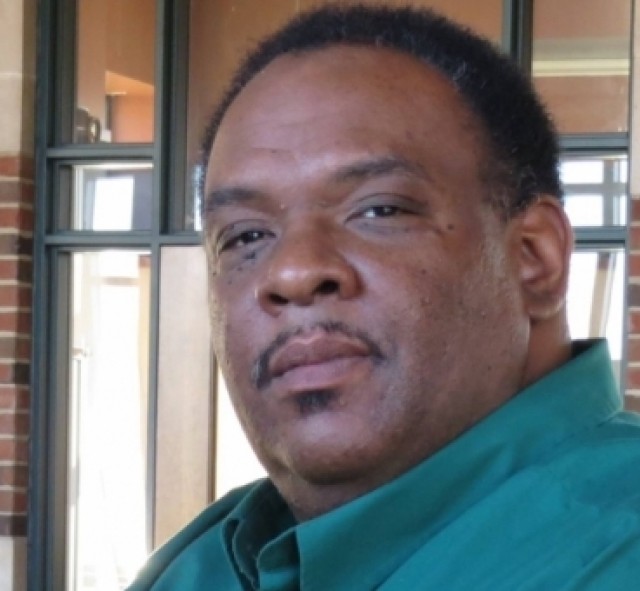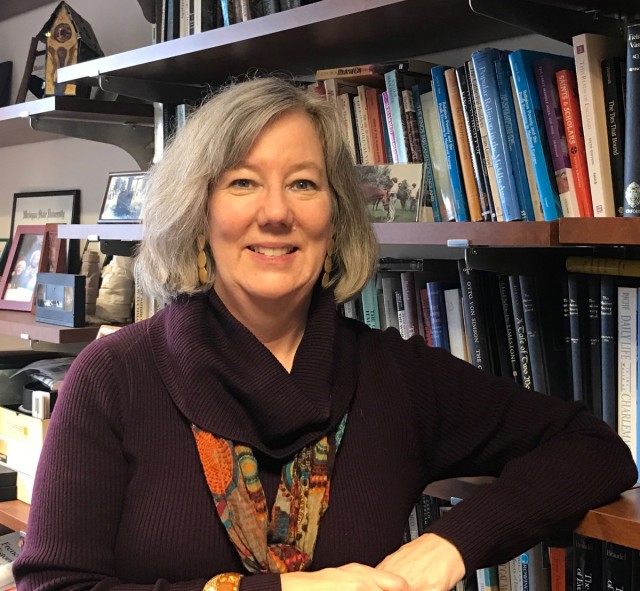Even though Jessica Hazelton Gribble graduated 18 years ago, the friendship and lifelong engagement with Wittenberg faculty has yet to cease.
Gribble, class of 1999 and now a senior acquisitions editor at ABC-CLIO,an independent academic and reference book publishing company with a scholarly imprint called Praeger, recently collaborated on publishing a book titled Animal Oppression and Capitalism with David Nibert, professor of sociology at Wittenberg.
“While I was at Wittenberg, I took an introductory sociology course with Dr. Nibert to fulfill a social science requirement. I found the class extremely interesting, but I thought of Dr. Nibert as an ideologue; his thoughts about the relationships among people, animals and our economic systems were more advanced than I was ready for at the time,” said Gribble, originally from Cleveland Heights, Ohio.
Gribble went on to earn a publishing certificate from the Denver Publishing Institute followed by a master's degree in writing and publishing from Emerson College in Boston, Mass. She eventually found herself working for Rowman & Littlefield in Boulder, Colo., where her boss was publishing Nibert's book Animal Rights/Human Rights: Entanglements of Oppression and Liberation.
“I was so excited and impressed that one of my professors was being published by my new company,” she recalled. “I'm pretty sure I wrote Dr. Nibert an overly enthusiastic note, but I didn't have anything to do with publication; the book was already in production when I arrived."
Today, however, Gribble is responsible for choosing which books ABC-CLIO’s Broomfield, Colo., office should publish. She then serves as a liaison for all of the authors. She also travels to academic and library conferences to meet potential and current authors, as well as reads manuscripts and writes book copy to help new authors understand the publishing process.
"In 2015, I was thinking up ideas for edited two-volume books, which my company was actively acquiring at the time. I thought that "animal rights" would be worthy of two volumes of material, and of course I thought of Dr. Nibert. I wrote to him, and he was enthusiastic about the idea, but he wanted to narrow the focus of the book to the connection of animal rights and capitalism.”
Although it took some time to seal the deal, a collaboration ensued.
“I was deeply enmeshed in another book project when I was first contacted by Jessica early in the summer of 2015. It was nice to hear from her, but I was not interested in another project at the time,” said Nibert, who teaches courses on animals and society, global injustice, the sociology of law, and social stratification at Wittenberg. He has worked as a tenant organizer, as a community activist, and in the area of prevention of mistreatment and violence against devalued groups. He is also the author of the books, Animal Oppression and Human Violence: Domesecration, Capitalism and Global Conflict (Columbia University Press) and Hitting the Lottery Jackpot: State Governments and the Taxing of Dreams (Monthly Review Press).
“When I told Jessica, I would only be interested in pursuing a project that viewed the capitalist system through a critical lens, I thought Praeger Press would not approve such a proposal,” he continued. “Indeed, some publishers balk at putting critiques of capitalism in print. However, to my surprise, after Jessica’s presentation to the board, she reported that Praeger approved the project and wanted TWO volumes. I was still undecided until my spouse, Beata, encouraged me to take on the challenge, noting that few books existed that tied the entangled oppression of humans and other animals to capitalism.”
Nibert enlisted a friend and well-known artist, Sue Coe, to do the art of the book and the project moved forward.
“The book was contracted in October of 2015 and since then, Dr. Nibert and I have been in close communication about the book,” she said. “Dr. Nibert is both an extremely intelligent, broad-thinking scholar and a kind and responsible person, so it's been a true pleasure to get to know him better and to work with him on this book, of which I'm very proud.”
After countless hours of work with 28 distinguished scholars from around the world, the timely volumes are now in print, having been published in September 2017.
“I thoroughly enjoyed working with Jessica,” Nibert said. “She is one of the most professional, supportive, diplomatic and talented people I have ever had the pleasure of working with; a Wittenberg star.”
In the book, Nibert, who is widely published, including in such journals as Child Welfare; the Journal of Interpersonal Violence; RESPONSE: To the Victimization of Women and Children; Critical Sociology; Race, Gender, Class; Society and Animals; the Journal of Human Rights and the Environment; and the International Journal of Sociology and Social Policy, documents how capitalism results in the oppression of animals and in environmental destruction, resource depletion and climate change. The book not only looks at how humans treat animals but at how humans choose to run our society, both economically and ethically.
“Dr. Nibert works in the field of critical animal studies, which is to the left of mainstream animal advocacy, and many of the contributors are active in that field as well,” Gribble explained. “The book is a much more intense and complex way of looking at animal rights, so I'm very pleased that Dr. Nibert wanted to steer the book in this direction. I think the book is an extremely valuable contribution to the literature.”
Gribble is also pleased with the path she has been able to pursue since her student days. A double major in English and religion with a minor in writing, Gibble served on The Torch staff, worked in the then-called Writer's Workshop and for the alumni magazine at Wittenberg. She was also in concert band, chapel choir and the Weaver Chapel Association.
“I'm very proud to have graduated from Wittenberg,” she said. “I received a great education and formed close relationships with many professors. I completely support the idea of a liberal arts education, and I hope my children will feel the same. Wittenberg gave me a great foundation for the work I do now, and I learned how to write and think critically - skills I believe are important to every job. I also loved Witt's connection with the Lutheran Church as I come from a family of many Lutheran pastors.”
Gribble and her husband, Dave ’99, met at Wittenberg, the same alma mater as her brother, Matt Hazelton ’02 and her parents, Chris and Elizabeth (Mazak) Hazelton ’72. Together, they have two children.







